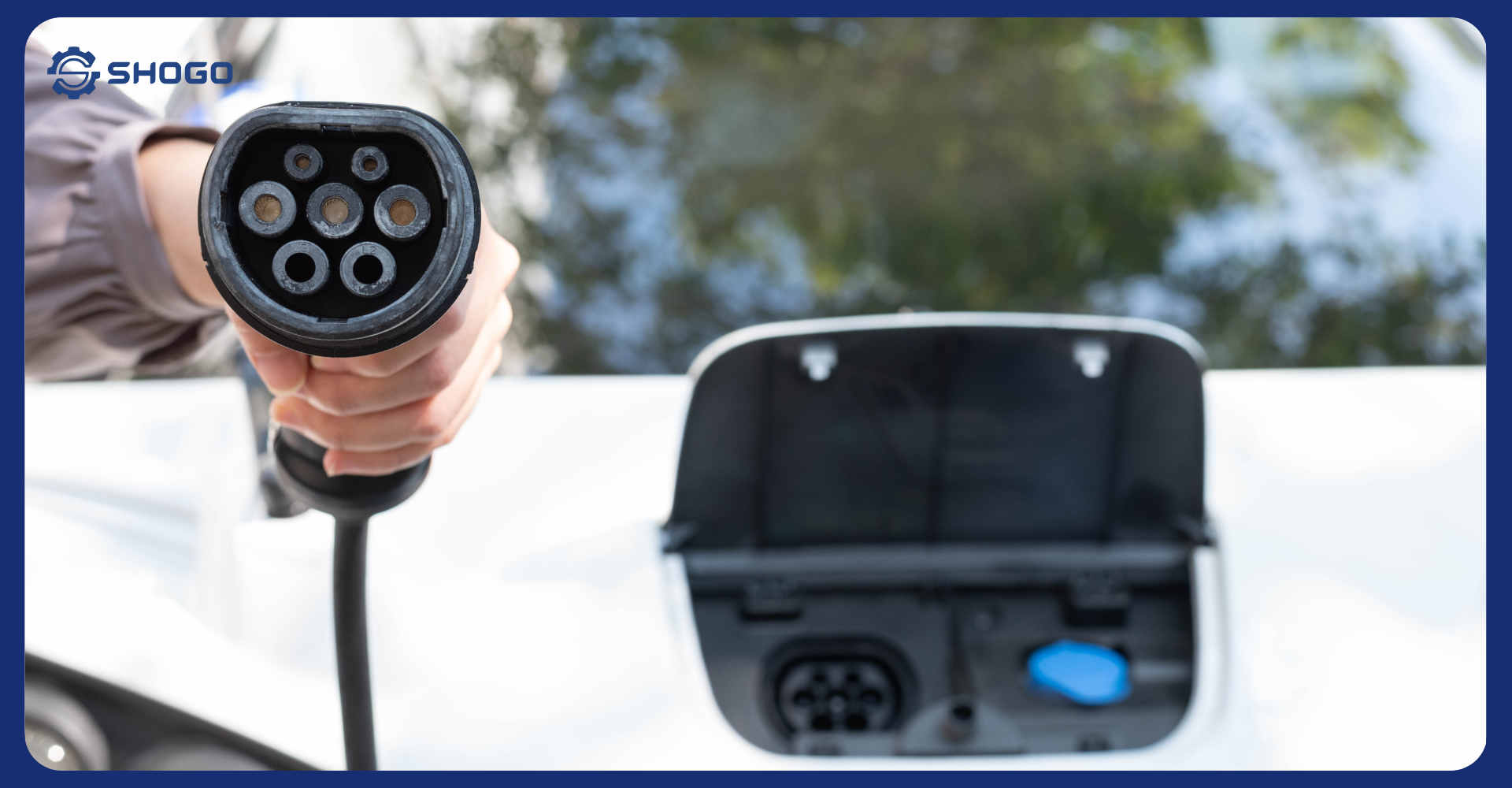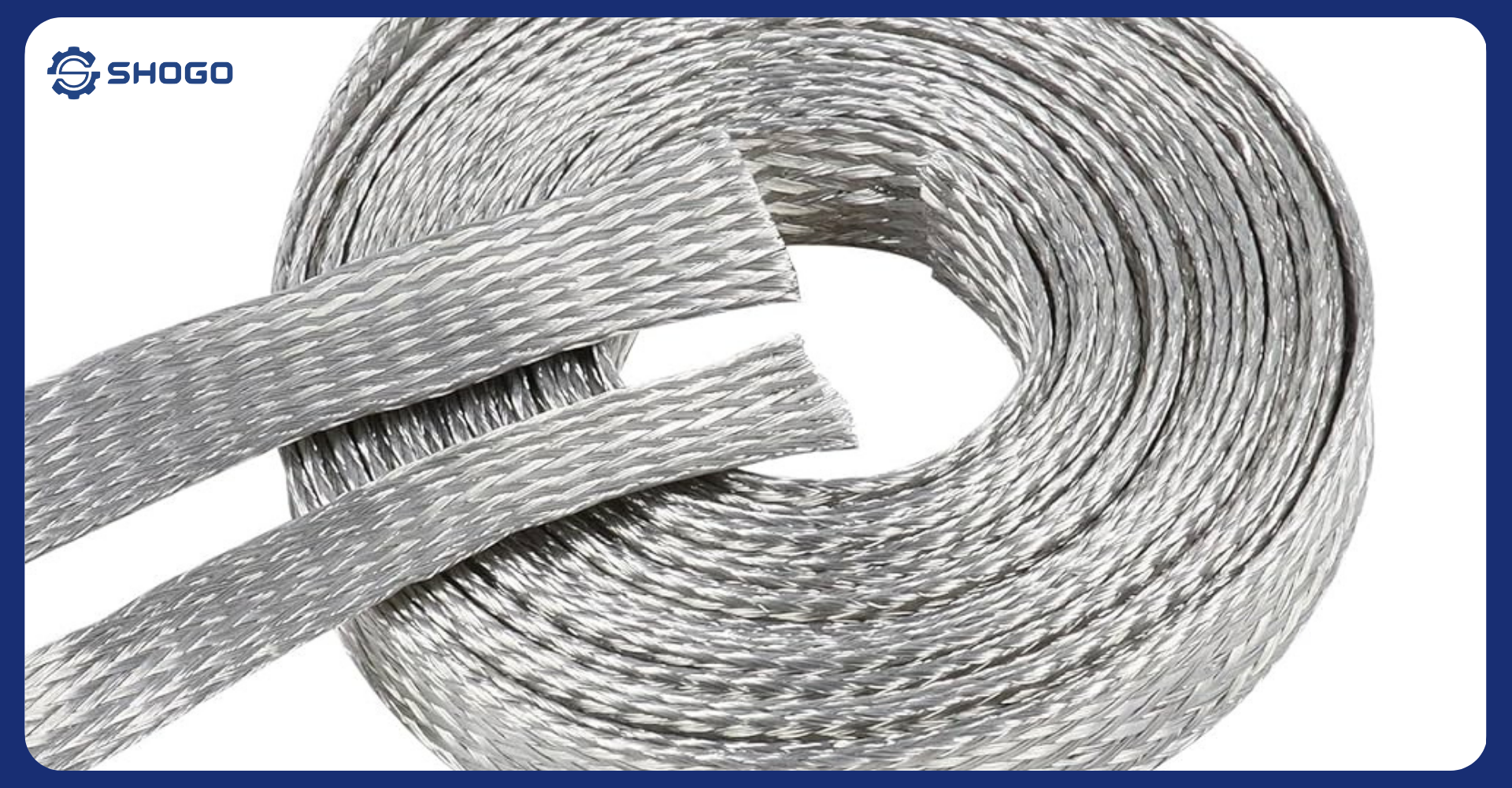
1. Introduction
In the electric vehicle industry, the power transmission system plays a crucial role in ensuring smooth operation and optimizing vehicle performance. One of the most important components of this system is the HV Cable (High Voltage Cable). But why is HV Cable so important? Let’s explore this topic in detail.
2. What is HV Cable?

HV Cable is a specialized electrical cable used to transmit high-voltage current in electric vehicles (EV – Electric Vehicle) and hybrid electric vehicles (HEV – Hybrid Electric Vehicle). These cables typically operate at voltages ranging from 300V to over 800V, depending on the vehicle’s design. Additionally, HV Cable is capable of handling high loads, ensuring a continuous and stable power supply for the entire vehicle system.
One key feature of HV Cable is its special protective layers, which help resist wear, environmental impacts, and ensure long service life under harsh operating conditions. This enhances the durability of the electrical system and minimizes the risk of damage.
3. Why is HV Cable Important in Electric Vehicles?
3.1. Ensuring Efficient Power Transmission
The primary function of HV Cable is to transmit electricity from the battery to key components such as:
- Electric motor – provides energy for vehicle movement.
- On-board charger – manages safe and efficient battery charging.
- Power control unit – regulates electrical flow based on different driving modes.
- Heating and cooling system – maintains optimal temperatures for the battery and motor.
Thanks to HV Cable, high-voltage electricity is efficiently transmitted, enabling smooth vehicle operation, minimizing energy loss, and improving battery performance.
3.2. Ensuring User Safety
High-voltage electricity can be hazardous if not properly controlled. HV Cables are designed with multiple protective layers to ensure:
- Excellent insulation, preventing electrical leakage and electric shocks.
- Fire resistance, ensuring safety in the event of short circuits.
- Durability in harsh environments, including high temperatures, humidity, and vehicle vibrations.
- High mechanical strength, reducing damage caused by impact or bending during use.
With strict safety standards, HV Cable helps protect users from electrical hazards and enhances the reliability of electric vehicle systems.
3.3. Optimizing Electric Vehicle Performance
Using high-quality HV Cable reduces energy loss during transmission, thereby optimizing vehicle performance. This contributes to increasing the driving range per charge and extending battery lifespan. Additionally, HV Cable helps reduce heat generation during operation, allowing the vehicle’s system to maintain stable temperatures and minimize wear on electronic components.
3.4. Supporting Fast-Charging Technology
Modern electric vehicles are moving toward fast-charging technology to reduce battery charging time. HV Cable can withstand high currents without overheating, enabling fast charging while maintaining safety and efficiency. This is especially important for high-end electric vehicle models, where faster charging is required without compromising the longevity of the electrical system.
3.5. Reducing Environmental Impact
By optimizing power transmission efficiency, HV Cable helps electric vehicles operate with lower energy consumption. This not only extends battery life but also reduces indirect emissions from electricity generation, contributing to environmental protection.
4. Criteria for Choosing High-Quality HV Cable
When selecting HV Cable for electric vehicles, consider the following factors:
- High voltage capacity (300V – 1000V, depending on the vehicle) to ensure compatibility with the electrical system.
- Heat and fire resistance, ensuring stable operation under harsh conditions.
- Good mechanical durability, capable of withstanding vibrations, impacts, and bending during installation.
- Electromagnetic interference protection, ensuring stable signals within the vehicle’s electrical system.
- International safety certifications such as ISO, UL, SAE J1654 to guarantee quality.
- Water and corrosion resistance, extending the product’s lifespan.
5. Conclusion
HV Cable is an essential component in electric vehicles, ensuring efficient, safe power transmission and optimizing vehicle performance. Choosing high-quality HV Cable not only extends the vehicle’s lifespan but also ensures a safer and more stable driving experience.
If you are looking for high-quality HV Cable for electric vehicles, choose products with certified standards from reputable brands. Investing in quality HV Cable will help you save on maintenance costs and enhance the performance of your vehicle’s electrical system.
👉 Need advice on HV Cable for electric vehicles? Contact us now for the best support!


